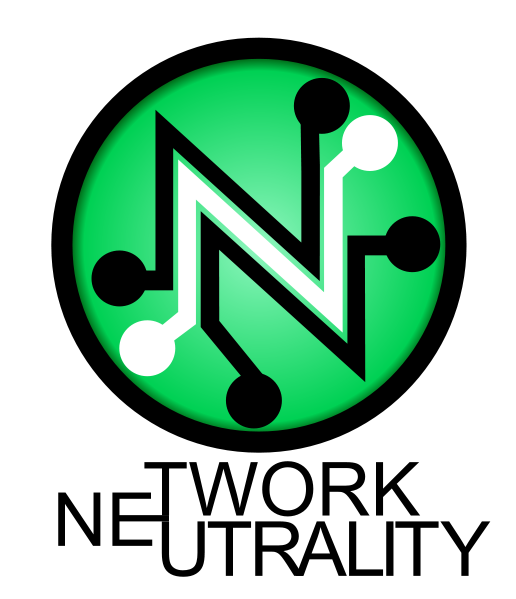 Last Wednesday in a Wired article, Federal Communications Commission Chairman Tom Wheeler proposed that “the FCC use its Title II authority to implement and enforce open Internet protections,” commonly known as Net Neutrality. Because a large percentage of scholarly activity takes place via the Internet, either as a distribution platform, a discovery service, a collaboration space, or an information management and storage tool, these proposed changes could have a profound impact on scholarly communication.
Last Wednesday in a Wired article, Federal Communications Commission Chairman Tom Wheeler proposed that “the FCC use its Title II authority to implement and enforce open Internet protections,” commonly known as Net Neutrality. Because a large percentage of scholarly activity takes place via the Internet, either as a distribution platform, a discovery service, a collaboration space, or an information management and storage tool, these proposed changes could have a profound impact on scholarly communication.
Since its inception, one of the basic principles for how information was distributed on the Internet was that all bits were considered equal. Wherever content was coming from or headed to, the routers and infrastructure passed along that content in the same way oblivious of the content type, the sender, or the recipient. Basically, all content is treated equally. It was this freedom that allowed the flourishing of products and services; the entire internet startup culture that developed in the 1990s was based on the premise that so long as you could get connected, you could serve up content on nearly the same footing as even the largest corporation. Any limitations were your own responsibility based on the size of your content server and the connection bandwidth you purchased.
As the amount of network traffic has increased and as the business models for digital content delivery have expanded, explorations began to take place about how Internet service providers could leverage their connections for greater financial benefit. Certainly there is a tremendous infrastructure investment that ISPs have made in building out the bandwidth and capacity of the modern network. Those ISPs make a compelling case that they should be able to charge for preferential service on their network. For example, if you want a better airline seat, you can always feel free to pay for first class. Unfortunately, network activity preference isn’t as simple as sitting in a seat with extra legroom.
One key issue for publishers and libraries is that not every provider is in the same position to pay for that “fast lane” on the Internet, if one were to be implemented. Without denigrating any content or service provider in our community, few are on par with the major movie studios, television or sports channels, or the many commercial retail outlets that have a web presence. Even more problematic is that the current speeds may become the preferred pricing “fast lane” and much of existing content could be pushed down to a new and slower economy class. Might library or publisher resources and therefore library patrons be perpetually stuck in the internet “slow lane”? Hopefully this will not be the case. In addition, this higher bar for access might inhibit the innovation that the world has seen on the Internet over the past two decades. Do we want to be in a position where only content or services that are developed by corporations with sufficient resources to purchase a reliable and fast connection are functional at a high level?
It is for this reason that the announcement on Wednesday is so important for scholarly resources and publishers. As content or services are increasingly shipped over the internet, having an open and regulated internet distribution platform that is not slowed or sped up based on the provider’s ability to pay will be critical to supporting scholarly information exchange. Researchers and scholarly publishers have long been near the forefront of using the Internet and the web, since many of the first inter-connected institutions were universities. Researchers used the early internet to share documents and many of the first publications online were scholarly journals.
Now, nearly every researcher is highly dependent on the Internet not only to access research and connect and share with colleagues, but also to distribute their content. Most of us these days are producers and creators of content as much as we are consumers of information. Having a tiered-service level would likely shunt all of the online creative activity undertaken by scholars, as well as every end user, into slower and slower tiers of service. This blog and the thousands of people who read it every day is a perfect example of the creativity and sharing that might not continue to be possible unless Net Neutrality is fostered and adopted by the FCC.
Another reason why Net Neutrality may become even more important in the future for our community is how communication among scholars has been changing. Scholarly communication increasingly includes much more than text. Included are a variety of supplemental materials, such as video, tables, images, files, or software—all of which require more bandwidth than text. Data sets are also increasingly being shared and distributed and this will only grow as mandates for sharing of not only publications but also data are implemented. If Net Neutrality were to be blocked, it is unlikely that researchers outside of the top institutions would be able to function effectively because they would not be able to pay to share these large files. Some researchers without sufficient Internet functionality use a “sneaker net” for sharing large files when a data set is too large to be easily transferred via the internet and it is faster or easier to send the files via a hard-drive in the mail. Might this old-fashioned data transfer become the new norm?
The rule-making process of the FCC and this particular proposal by Chairman Wheeler will likely continue to be debated for some time. We should all welcome the full-throated call for support that Wheeler made this week and contact our legislators with our support. Hopefully, Wheeler’s approach will be adopted and we can all move in the fast lane together.
Discussion
4 Thoughts on "How Might Scholarly Communication Benefit from Net Neutrality?"
Many years ago, I remember hearing talk that Internet2 might be used for scholarly communication, which would, by contrast, privilege it over other traffic. Does anyone know what came of this idea?
Todd, I do not know enough about this issue to have an opinion, but your article seems very one sided. Federal regulation is seldom a pure good, so I wonder what are the downsides, trade offs and potential unintended consequences? To that end I poked about a bit and found this summary: http://www.cnet.com/news/fcc-and-net-neutrality-what-you-really-need-to-know/.
While still favoring regulation it at least begins to unpack the complexities. There seem to be two options, regulation under Title II of the Telecomm Act or write a new law. It looks like there is a bad fit under Title II, which is not surprising because it was not designed for the Internet. In fact the Wheeler proposal looks to be internally inconsistent with itself, which is always a bad design. Taxation looks to be an issue as well and of course Federal control per se. I would be cautious about endorsing any of this.
While still favoring regulation it at least begins to unpack the complexities. There seem to be two options, regulation under Title II of the Telecomm Act or write a new law. Many years ago, I remember hearing talk that Internet2 might be used for scholarly communication, which would, by contrast, privilege it over other traffic. Does anyone know what came of this idea? http://www.freecoolmathgames.net/logic/electric-box
Reblogged this on Alessbx's Blog and commented:
Discussão sobre a Neutralidade da Internet, a partir de um artigo da Wired. Nesse texto, o autor bem lembra que a comunicação científica, amplamente baseada na Internet, não é feita apenas através do compartilhamento de artigos, mas também inclui cada vez mais muito mais do que o texto. Incluem-se uma variedade de materiais como vídeo , tabelas, imagens , arquivos ou softwares e todos exigem mais largura de banda do que o texto. Por isso a importância da Neutralidade da Rede. O conhecimento precisa ser compartilhado por todos e não apenas por aqueles que podem bancar o envio de tipos de dados diferentes…



